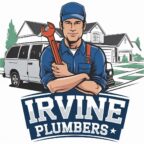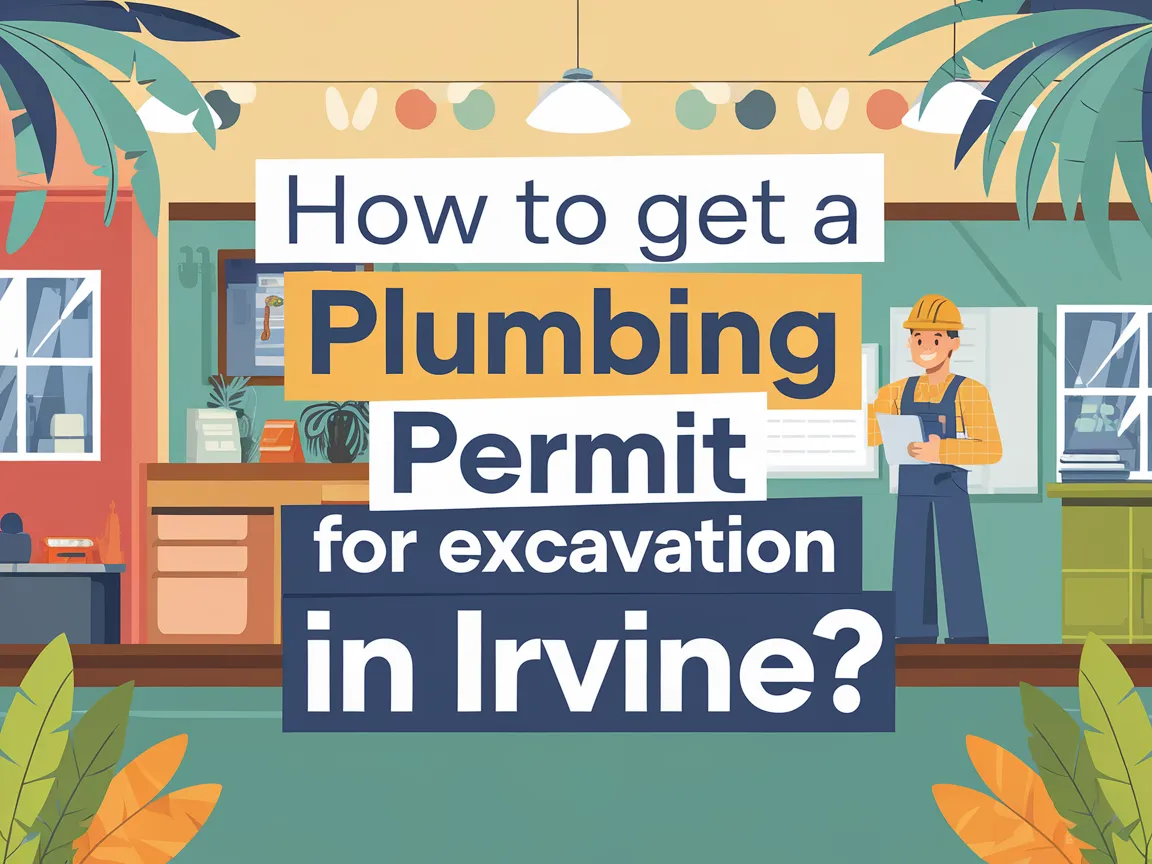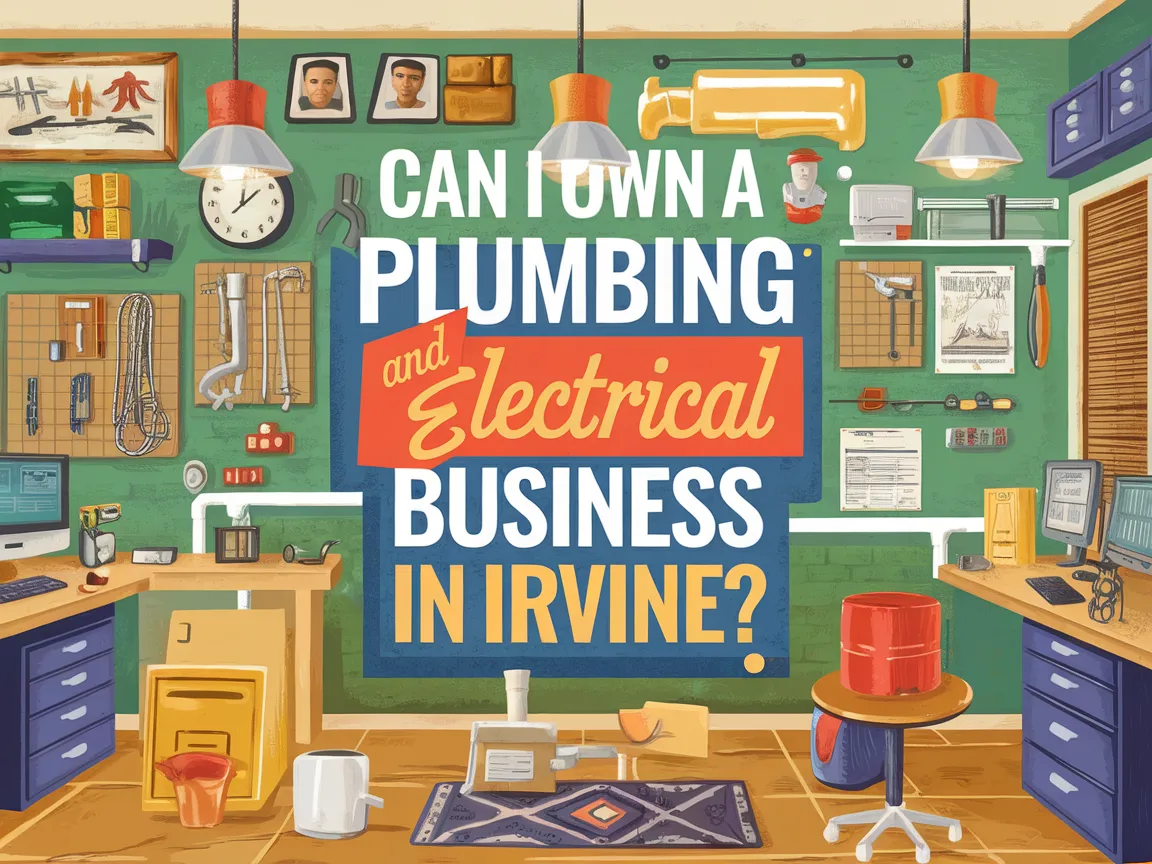How to Be A Good Plumber?
Last Updated: February 27, 2025
A plumber is someone who fixes pipes and sinks so that water can flow properly. Think of it like a superhero for water, making sure everything works just right!
When I’m out on a job, customers often ask me how to be a good plumber. With my firsthand experience, I can share tips and tricks, and I’m here to help you learn.
This guide on how to be a good plumber will cover what a plumber does, steps to becoming skilled, costs of training, factors affecting plumbing costs, and when to hire a plumbing pro.
Table of Contents
- How to Be a Good Plumber?
- What is a Plumber?
- Before You Start Your Plumbing Career…
- How to Become a Skilled Plumber…
- Essential Skills and Techniques to Master as a Plumber
- Common Plumbing Problems You Should Be Prepared For
- How Much Does It Cost to Become a Plumber?
- What Factors Affect Plumbing Costs?
- Special Considerations for Aspiring Plumbers
- Essential Attributes of a Great Plumber
- Networking Tips for Upcoming Plumbers
- Business Basics Every Plumber Should Know
- You, the Unlikely Plumbing Hero Of Irvine
- Final Thoughts: Key Takeaways to Succeed As a Good Plumber
- Additional Resources
How to Be a Good Plumber?
To be a good plumber, focus on skills like problem-solving and technique. Communicate effectively with clients and always follow codes. Stay stoked to learn and adapt in this field and keep your tools in top shape. When planning your plumbing career, it helps to know the plumbing basics and DIY techniques.
What is a Plumber?
A skilled professional plumber is a skilled professional who installs, repairs, and maintains water, gas, and drainage systems in homes and businesses. They work with various materials, including pipes made of copper (About 3.2 Cm or 1.25 In in Diameter), PVC, and ABS, to ensure our supply of clean water and bathroom fixtures run smoothly. Professional plumbers carefully plan their daily tasks and prioritize projects through strategic work scheduling techniques.
I’ve found this knowledge super handy, especially when dealing with complex systems that can turn your home into a plumbing nightmare. Knowing the technical lingo—like what PSI (Pounds Per Square Inch) means for water pressure or understanding plumbing codes (Like PASF, Which Stands for Public Agency Structural Framework)—can help keep your plumbing interactions fire-season ready.
Before You Start Your Plumbing Career…
What do you need to become a good plumber?
- Pipe Wrench: Get a reliable one, like the RIDGID 31095. It’s essential for gripping and turning pipes without slipping.
- Plumbing Screwdriver: A specialized screwdriver, like the Klein Tools 69500, helps you access hard-to-reach screws.
- Gloves: Use durable gloves, such as NoCry Protective Gloves, to protect your hands during messy jobs.
- Tape Measure: Keep a high-quality tape measure, like Stanley’s 33-725, handy to ensure you get exact fitting measurements, like 1.5 inches.
I’ve been down this road before, and with this prep under your belt, transitioning into the world of plumbing flows smoothly. Honestly! Getting these essentials together will stoke up your confidence and make tackling plumbing issues around Irvine a lot easier. If you’re considering expanding your professional horizons, you might want to explore owning a multi-trade business. Just you wait!
We covered essential steps to prepare for a plumbing career. We will now cover becoming a skilled plumber effectively.
Also See: Can a Phantom Flush Be Fixed Without Calling a Plumber?
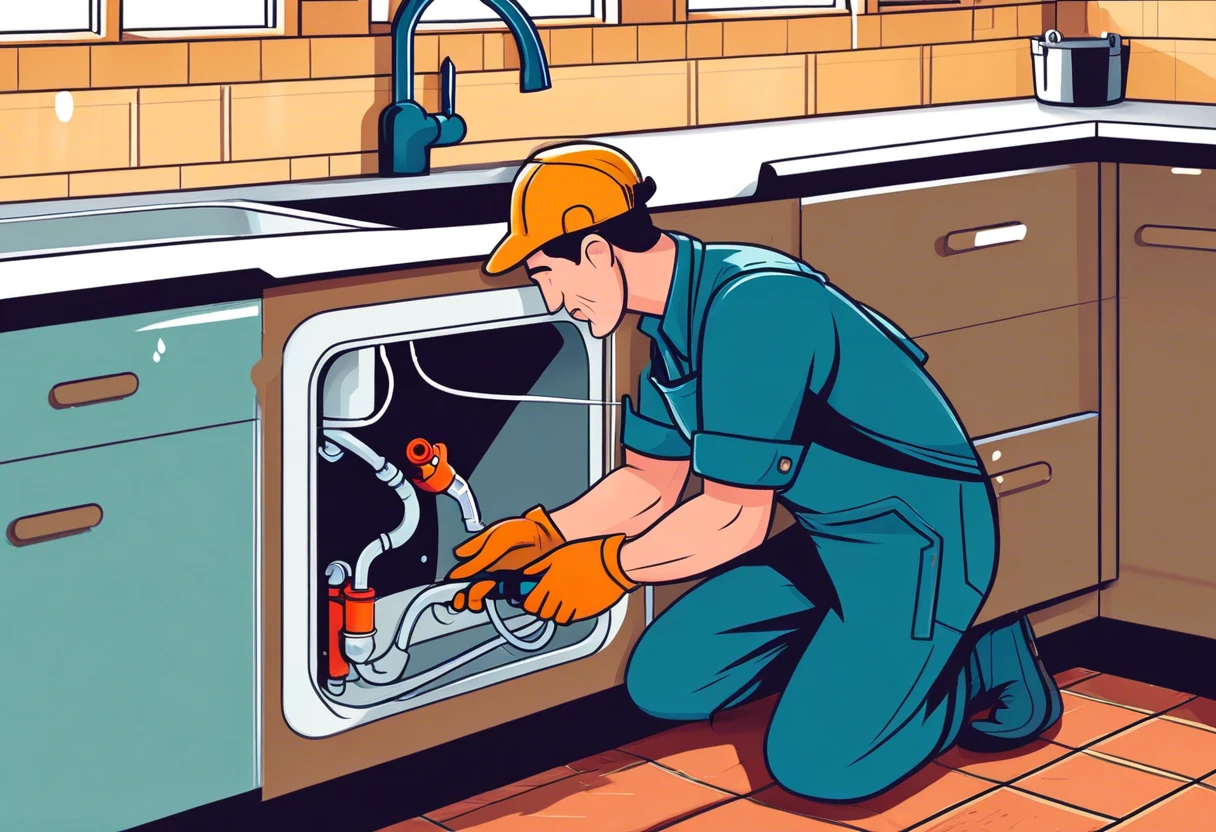
How to Become a Skilled Plumber…
Let’s dive into some steps to boost your plumbing skills and thrive in this trade.
-
Obtain Relevant Training and Education
Start with classes that teach basic plumbing skills. Every plumbing school has its own vibe, but courses often cover local codes and plumbing system layouts.
Look for programs accredited by organizations like the Plumbing-Heating-Cooling Contractors Association. Many of these schools are right here in SoCal and provide great local insights.
-
Gain Practical Experience Through Apprenticeships
Get your foot in the door by landing an apprenticeship with a licensed plumber. You typically work for four or five years before you can take the licensing exam in California. During your apprenticeship, you’ll encounter various plumbing systems and techniques, including specialized wet vent plumbing configurations.
Be prepared to work in various weather conditions, including our fire season—this is crucial for gaining a broad range of skills. Stay motivated not just to learn the basics but also to face the complex situations you’ll encounter daily!
-
Develop Strong Problem-solving Skills
Sharpen your analytical mind while tackling leaks, clogs, and installation issues. Embrace creative thinking; no two plumbing jobs are the same!
Remember: The strategy I just outlined works best when you can quickly assess a situation and figure out the best course of action. Start tackling small DIY projects around your home—you’ll see huge returns on the investment of your time!
-
Master Communication and Customer Service Skills
Always keep your communication straightforward. It’s not just about fixing pipes; be friendly while explaining problems and solutions to customers!
Your interactions in communities like Irvine or the surrounding OC matter a ton. Being outgoing and personable helps in building solid relationships with clients.
-
Invest in Quality Tools and Equipment
Stock up on reliable tools—the right equipment can save you time and hassle. I’ve tackled everything from clogged drains to burst pipes, and I’ve found success with top-quality gear that gets the job done.
When it comes to spending, there’s cheaper stuff and then there’s professional-grade tools—resist the urge to go cheap from the start. Investing in quality gear pays off in the long run.
Pro Tip: Start networking and building connections in your local community; it opens doors for more work and learning opportunities!
We have now covered the steps to become a skilled plumber. The next section focuses on vital skills and techniques for mastery.
Essential Skills and Techniques to Master as a Plumber
Let’s dive into some crucial skills and techniques that can set you apart from the average plumber. Mastering these will make your work smoother and help you build a solid reputation. If you’re wondering about the journey to becoming a professional, the path to developing professional plumbing expertise takes time.
Hands-On Techniques
- Pipe Fitting: Understanding how to measure and cut pipes accurately. Always double-check before you cut—measure twice, cut once!
- Soldering: This technique is key for joining copper pipes. Having the right soldering kit can speed up repairs significantly.
- Drain Cleaning Techniques: Knowing various methods, from using a simple plunger to using an electric snake, makes you a versatile plumber.
- Fixture Installation: Learn how to install toilets, sinks, and faucets correctly to avoid future callbacks. Knowing how to align everything perfectly is crucial.
Soft Skills Matter Too!
No one wants a grumpy plumber in their house! Here are some soft skills that can make a big difference:
- Active Listening: Pay attention to what the customer is saying. Understanding their concerns goes a long way in providing great service.
- Conflict Resolution: Issues may arise, but knowing how to handle customer complaints can turn a negative experience into a positive one. Always come prepared with solutions!
- Time Management: Being punctual and managing your schedule effectively earns you respect. It also prevents overlaps in appointments, especially in busy areas like Irvine.
So far we covered key skills and techniques every plumber should master. Let’s look at common plumbing issues to be ready for next.
Common Plumbing Problems You Should Be Prepared For
Every plumber faces common issues. Being ready to tackle these means you won’t be left in a pinch!
| Problem | Typical Fix | Time Estimate |
|---|---|---|
| Clogged Drains | Use a plumber’s snake or clean out the trap. | 30-60 minutes |
| Leaking Faucets | Replace the O-ring or cartridge. | 20-30 minutes |
| Running Toilets | Adjust or replace the flapper. | 10-15 minutes |
| Low Water Pressure | Check for clogs in the aerator or main line. | 1-2 hours |
Being prepared for these common issues boosts your efficiency and builds trust with your clients!
We covered common plumbing issues you should anticipate. We will now cover the expenses involved in becoming a plumber.
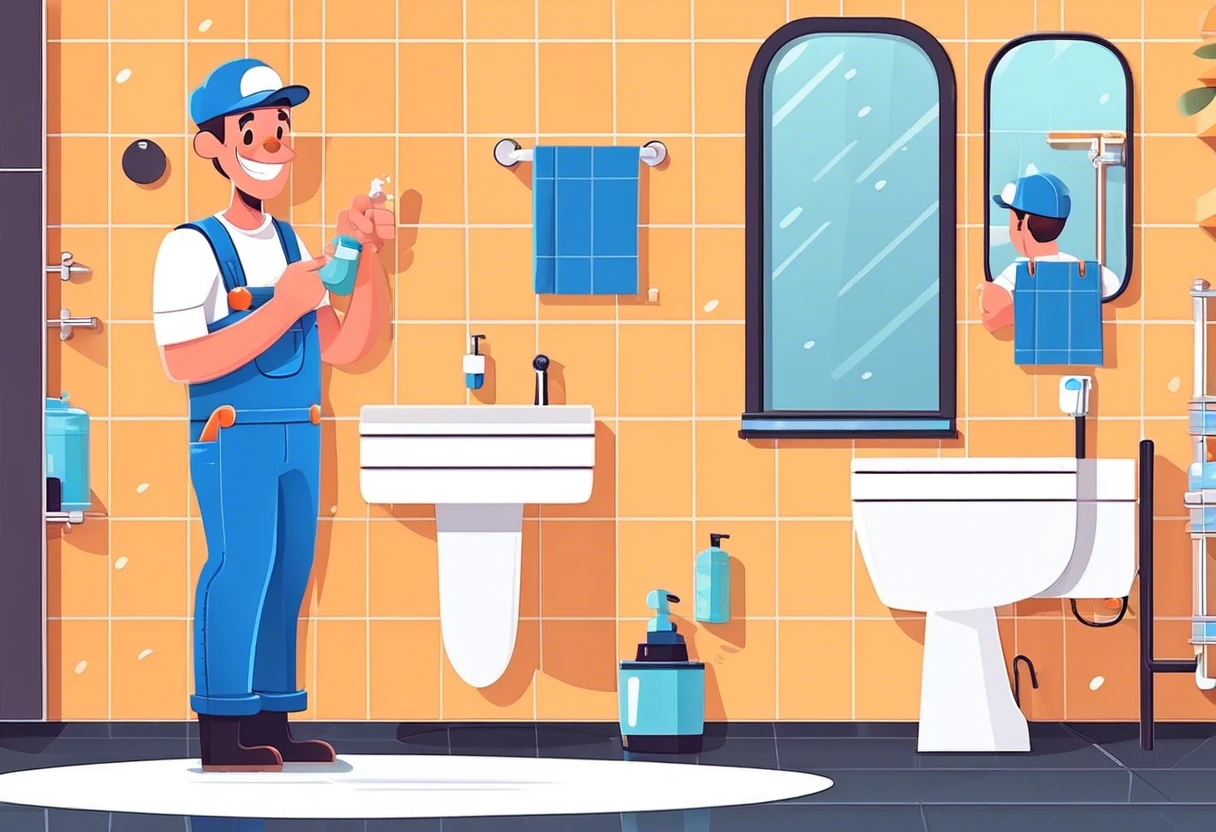
How Much Does It Cost to Become a Plumber?
If you’re eyeing the plumbing trade in Irvine, CA, it’s good to know the costs involved. You can expect to spend anywhere from $1,500 to $15,000. I’d recommend budgeting around $7,500, which covers tuition, tools, and those sneaky unplanned costs that can pop up during training, like licensing fees or extra materials. From my experience, it can take about 2 to 4 years to fully transition into a professional plumber, depending on your training path. PVC pipe durability matters significantly in your long-term plumbing career planning.
Cost Breakdown
| Cost Category | Low Estimate | High Estimate |
|---|---|---|
| Tuition for Trade School | $1,500 | $15,000 |
| Tools & Equipment | $200 | $1,500 |
| Licensing Fees | $50 | $500 |
| Additional Materials | $100 | $1,000 |
| Total Estimated Cost | $1,850 | $18,000 |
What Factors Affect Plumbing Costs?
So, what factors influence your journey to becoming a great plumber?
-
Experience Level: More experience often means higher-quality work, which leads to fewer callbacks.
-
Tools and Equipment: Investing in high-quality tools enhances efficiency and saves you time on the job.
-
Continuing Education: Staying updated with the latest plumbing techniques boosts your value in the field.
-
Customer Service Skills: Great communication and service can lead to repeat customers and solid referrals.
Special Considerations for Aspiring Plumbers
This section dives into critical technical factors that can make or break your plumbing career.
- Pipes (DURABILITY) – Know the different pipe materials. PVC, used for drains, costs about $0.50 per foot (About $0.30 Per Meter). Copper is great for water supply, around $2.00 per foot (About $1.20 Per Meter). Always learn proper joining techniques.
- Hydraulics (FLUID PRINCIPLES) – Understanding water flow is crucial. Underpressure systems should have at least 40 PSI (Pounds Per Square Inch) for good service. If you’re installing a new line, aim for a proper slope (About 2%) to avoid backup.
- Drainage & Venting SYSTEMS – Local building codes demand adequate venting to prevent siphoning. Every appliance needs a properly sized vent, or you might face cash flow issues—compliance errors can cost up to $100 in fines.
- Temperature FORECAST – Your plumbing should withstand severe cold (About -1°C or 30°F) in winter and handle a hot mess coming at 60°C (140°F) to reduce hazards. Insulating disconnects helps fight freezing and prevents pipe damage from melting issues.
Essential Attributes of a Great Plumber
To truly excel in plumbing, certain personal attributes make all the difference.
- Attention to Detail: Every pipe connection counts! Overlooking a small leak or a loose joint can lead to bigger headaches down the road.
- Physical Stamina: Plumbing can be demanding. You often find yourself in tight spaces or lifting heavy materials. Staying fit helps you keep up!
- Customer-Centric Mindset: Your customers want their issues resolved efficiently. A good plumber prioritizes their needs and communicates clearly.
- Problem-Solving Attitude: Plumbing challenges vary. Being adaptable and approaching each issue with a creative mindset is key to success.
Networking Tips for Upcoming Plumbers
In the plumbing game, who you know can be just as important as what you know. Let’s explore ways to build a solid network.
-
Join Local Plumbing Associations
Getting involved with groups like the Plumbing-Heating-Cooling Contractors Association in Irvine gives you access to valuable resources, training opportunities, and other pros in the field. If you’re considering launching your own plumbing business, exploring the financial requirements can help you plan strategically and estimate startup costs effectively.
-
Attend Trade Shows and Community Events
Events in the OC area are fantastic for meeting potential clients, suppliers, and fellow plumbers. Make connections that can lead to referrals down the road!
-
Utilize Social Media Platforms
Platforms like Instagram or LinkedIn can showcase your projects. Share your work, tips, and maybe even a ‘day in the life’ series to engage your audience. It helps build your reputation in IVC!
Business Basics Every Plumber Should Know
If you want to become a successful plumber, understanding business fundamentals is crucial.
| Business Aspect | Description | Why It Matters |
|---|---|---|
| Pricing Strategies | Learn how to calculate hourly rates and material costs accurately. | Competitive pricing leads to business growth and customer satisfaction. |
| Marketing Techniques | Invest in local SEO and social media marketing to promote services. | Effective marketing brings more clients who need plumbing work. |
| Record-Keeping | Use software for invoices, expenses, and customer management. | Good records streamline operations and tax time becomes less stressful. |
| Regulatory Knowledge | Stay updated on local and state plumbing code changes. | Compliance prevents fines and enhances trust in your services. |
You, the Unlikely Plumbing Hero Of Irvine
Ever found yourself knee-deep in a plumbing conundrum, right here in Irvine, CA? Literally, it’s a whole journey! But don’t worry, I’ve been through it plenty of times.
Take that time when the OC heatwave dried up everything, and my showerhead felt like it was coughing rather than raining. Talk about a letdown, right?
Well, with some trusty tools and a bit of ‘Cali’ know-how, I took on the challenge. As they say, “With any luck,” you’ll find it’s simpler than it seems, especially with a little guidance!
So, what’s the deal with plumbing issues out here? You wouldn’t believe how common it is to have leaky faucets or clogged drains. They can really rack up your water bill, which no one in Irvine wants, trust me! If you’re renting and wondering about maintenance responsibilities, check out landlord plumbing repair obligations.
I’ll let you in on a little secret: when it comes to fixing a leaky faucet, sometimes all you need is a new washer. It’s a straightforward fix that can be tackled in under 30 minutes. Just give yourself that time, and you’ll be stoked at how easy it is!
And don’t even get me started on running toilets, man! It’s like flushing money down the drain—quite literally. A quick check on the flapper can sometimes do the trick, saving you from hefty water bills.
But maybe some issues are just too complex, like a major leak or a busted water heater. In those scenarios, you’d definitely want to call a pro. It’s super common for folks to think, “I can handle this,” only to find themselves in a bigger mess. You know what I mean?
Curious about what skills make a good plumber? Well, it’s a mix of technical know-how and good old communication skills. The ability to solve problems on the fly? That’s like gold in this line of work. If you’re wondering about specific plumbing maintenance techniques, professional plumbers recommend careful solutions.
Now, if you’re thinking about improving your plumbing skills, consider getting your hands dirty with some plumbing apprenticeships or workshops. Trust me, it’s a game changer. You stay in the loop with all the latest local codes, too. You’re living in Cali, after all—why not be the best at what you do? Plumbers often encounter technical terms like CTS terminology in plumbing.
And here’s the kicker: you can totally make a solid income as a plumber, especially in the OC where demand is hella high. Specialized skills can earn you a pretty penny—like $100,000 if you play your cards right. Mastering advanced techniques like reducer fitting installation techniques can significantly boost your professional value.
At the end of the day, whether you’re plunging a toilet or fixing a pipe, just remember: a reliable plumber shows professionalism and knows their stuff. You want someone who stands by their work and builds trust in the community, and I believe that’s exactly what we’re all about here in Irvine. If you’re curious about the complexities of home plumbing repairs, homeowner plumbing system replacement requires careful consideration and expertise.
So next time you’re facing a plumbing dilemma, don’t sweat it! Just reach out, and we can tackle it together. After all, we’re all in this sunny city together!
Final Thoughts: Key Takeaways to Succeed As a Good Plumber
We’ve covered a lot regarding how to be a good plumber, including what defines a plumber, steps to launch a plumbing career, costs to become one, factors influencing plumbing expenses, important considerations for those starting out, and knowing when to hire a plumbing expert.
In simple terms, being a good plumber means developing your skills and knowledge while being ready for the challenges ahead. Wishing you smooth sailing with your plumbing projects—and remember, I’m just a call away if things get tricky.
For further insights and guidance, Irvine Plumbers is here to help.
Additional Resources
- City of Irvine Plumbing Permits and Codes – https://www.cityofirvine.org
- Must-Have Qualities of a Good Plumber – Top of the Line Plumbing
- How To Be a Good Plumber | Tradify™
